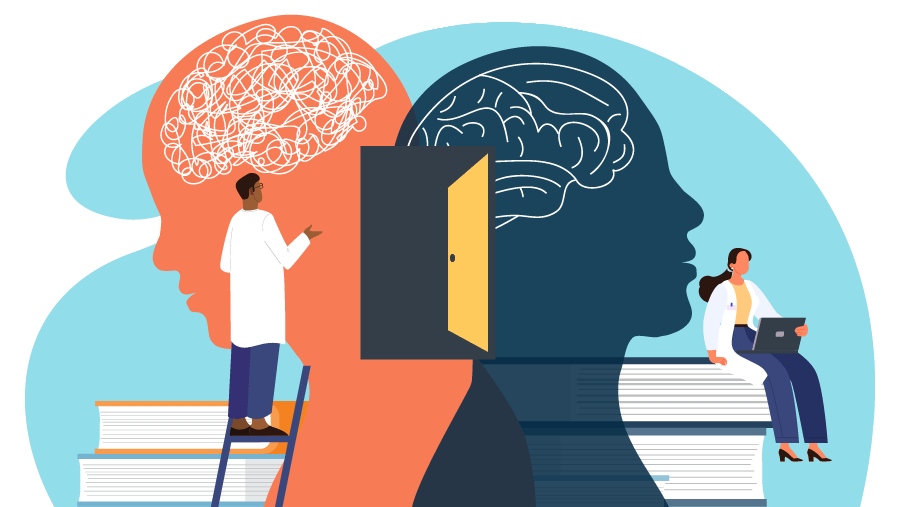Recently, the Surgeon General, Dr. Vivek Murthy released an advisory about the devastating impact of The Epidemic of Loneliness and Isolation. In it, he revealed that though the pandemic has contributed to loneliness, half of US adults reported experiencing loneliness, even before the pandemic. He determined that loneliness and isolation results in a disconnection that affects our mental, physical, and societal health.

The physical health consequences of poor or insufficient connection results in a 29% increased risk of heart disease, a 32% increased risk of stroke, and a 50% increased risk of developing dementia for older adults and can also increase the risk of premature death by more than 60%.
But it doesn’t stop there, he went on to assert that loneliness is as deadly as smoking 15 cigarettes a day!
The Surgeon General’s comments are eye opening and urgent. But they really shouldn’t be. Common sense dictates that we are a social species whose evolution has been fueled by cooperation and connection between one another. Socialization is fundamental to our existence and well-being. For example, a lack of connection between mother and child before the age of two years old may result in reactive attachment disorder, where children are withdrawn and unresponsive to others, including caretakers. For years, studies have reinforced what we already knew; loneliness is a major contributor to depression, low self-esteem, sleep problems, increased stress, and suicidal ideations (Mushtaq et. al. 2014).
Sadly, we have come to accept and live with the mistaken notion that loneliness is something that only older adults face because of the loss of family or friends or transitioning to assisted elder care housing. Due to ageism, there is no outcry and we do very little about it. Which now more than ever is especially concerning given Dr. Murthy’s statement about loneliness leading to increased dementia in the elderly.
However, demographics have shown that people ranging in age from 16 to 24 report feeling lonelier than their older counterparts.

As well, loneliness is inordinately impacting LGBTQ plus populations (Harris, 2019).
So certainly, this serious health and social issue of loneliness and isolation must and should be address nationally. Which is exactly what Doctor Murthy has done by establishing the framework for establishing a national strategy to advance social connection with the following six foundational pillars:
1. Strengthen Social Infrastructure: Strengthen social infrastructure, design environments that promote connections (parks, libraries, playgrounds), and scale community connection programs, and institutions that bring people together.
2. Enact Pro-Connection Public Policies: Promote public transportation or paid family leave that can support and enable more connection among a community or a family.
3. Mobilize the Health Sector: Health care providers should assess patients for risk of loneliness and intervene.
4. Reform Digital Environments: We must critically evaluate our relationship with technology and make sure our digital engagement provides meaningful and healing connections with others.
5. Deepen Our Knowledge: A more robust research agenda must be established to further our understanding of the causes and consequences of social disconnection, populations at risk, and the effectiveness of efforts to boost connection.
6. Cultivate a Culture of Connection: We must promote a culture of connection so that people can talk and interact with one another.
Doctor Murthy’s recommendations are timely and needed. But there are some other things that every one of us can do daily to increase our social connections and reduce isolation and loneliness for ourselves and for others:
- Check on neighbors and friends either in person, by cell or even e-mail, especially if we they are in a situation where they are spending an inordinate amount of time by themselves.
- Pay regular and frequent visits to our elderly loved ones, especially if they are living alone or are in assisted, medical, nursing, or institutional care.
- Are you asking with conviction and interest when you ask a friend, neighbor, coworker, or even a stranger, how they are doing? Be ready to have a real conversation.
- Ask your children if they are experiencing any kind of loneliness or isolation. Since kids do spend so much time outside of our purview even when at home, we may not be aware of feelings of loneliness.
- Make sure that your kids are not spending the bulk of their time on the internet. Now more than ever, given what we know about this epidemic of loneliness, we should begin training our children to be more sociable, and that begins with play dates, and encouraging them to have more extracurricular activities, including school clubs and team sports.
- Though remote work has been very convenient for many of us, try not to fall into the trap of isolation. You can actively engage in a hybrid work situation so that you do have some in person contact with your fellow workers. Or if you are content with total online work, as I am in my clinical practice, make sure that you compensate with in-person conferences or more social in-person time.
- Don’t let social media become your only means of connecting with others. Get out of the house and join social groups in person as much as you can.
- Never accept isolation and loneliness as part of your life. Do something about it and don’t let it become part of your new normal. Make every effort to connect with friends and family on a consistent basis. And if you feel that isolation or loneliness is resulting in sadness, anxiety, or any other emotional issue, consult and get help from a mental health professional.
In closing, alone time is important for winding down, de-stressing, doing some soul searching, which can improve and maintain physical and mental health. But just as importantly and in the words of Dr. Murthy, “Social connection is as fundamental to our mental and physical health as food, water and sleep.”
To learn more or to reach out for mental health issues, or to follow Lyric Health to keep updated on our counseling and wellness programs.


